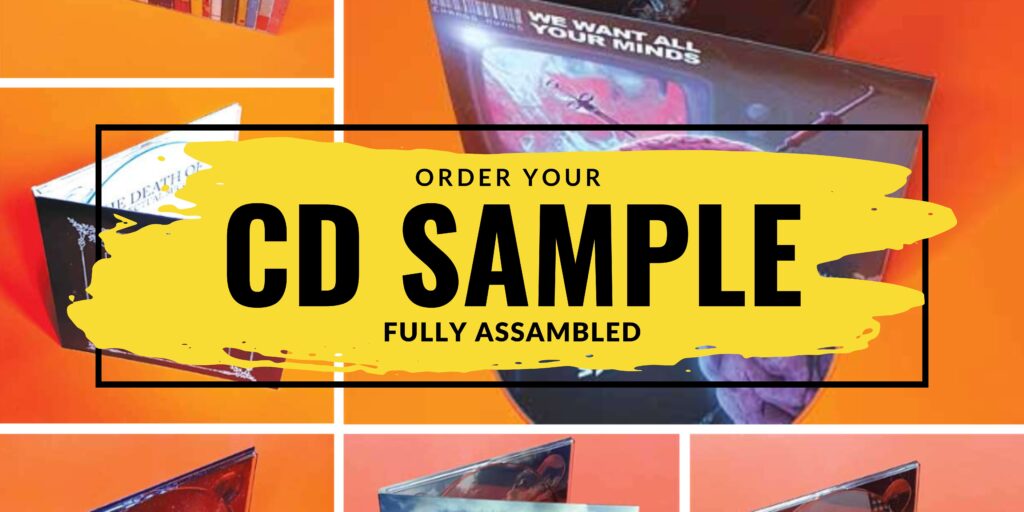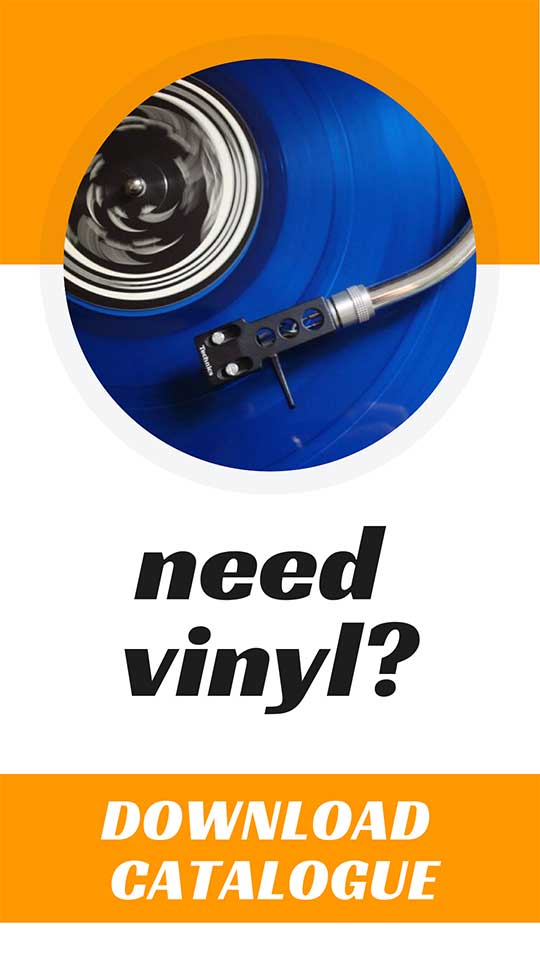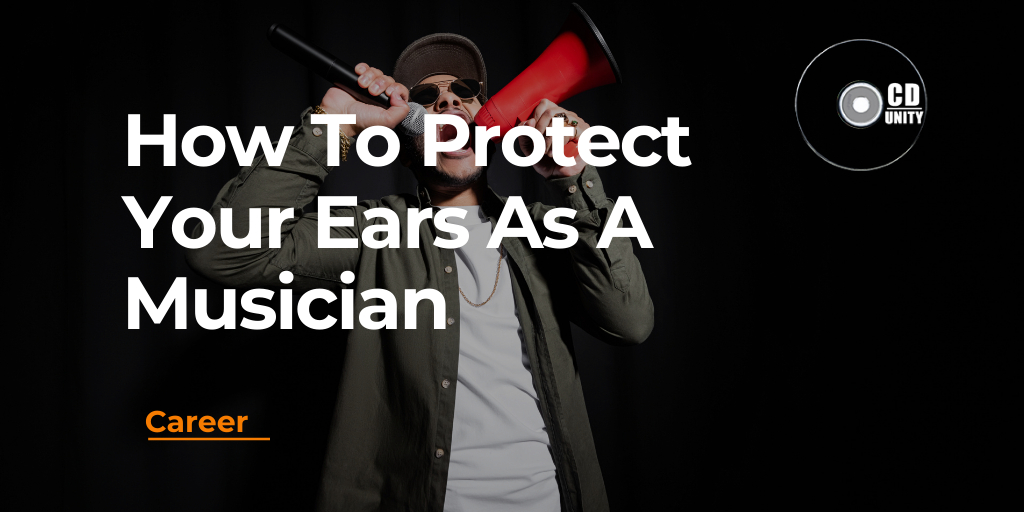
How To Make Money As A Music Producer
Many music producers struggle to earn steady income from their skills, despite loving what they do. In fact, successful music producers often have multiple sources of income beyond just making songs.
This article shares easy and clear ways to make money as a music producer: from selling beats and sample packs online to teaching others how it’s done. Read on for simple tips that actually work.
Key Takeaways
- Producers often earn £300–£2,000 per track for artists and around £20–£1,000+ by selling beats online via sites like BeatStars; British producer JAE5 regularly does this in UK Afrobeat and rap genres.
- Sync licensing (songs used in TV or games) earns hundreds to thousands of pounds per licence—platforms such as Music Gateway or TAXI help find these opportunities; EDM producer Matt Lange gained steady income through sync deals.
- Teaching music production through private lessons (£30–£100/hour), Patreon subscriptions (Andrew Huang earning over £9,000/month from about 2,500 patrons), and creating courses on Udemy or Skillshare are top ways producers make good steady incomes.
- Performing live DJ sets can boost earnings significantly—UK’s live event industry recovered strongly post-COVID lockdowns with earnings reaching more than £1.28 billion in 2022 according to Statista.
- Selling merchandise on-demand using services such as Printful alongside digital sales of loops, presets or licensing tracks for apps easily adds extra money streams without high upfront costs.
Produce Music for Artists

Producing music for artists opens doors to stable income streams and builds authority in the music industry. Producers make £300-£2,000 or more per track—higher fees often come with experience and working with well-known singers or bands.
Artists regularly seek professional producers who can help them produce high-quality music tailored to their unique style. Working closely on projects increases a producer’s chances of landing placements on Spotify playlists, Apple Music featured sections, and catching attention from record labels.
A good producer is someone who can bring the best out of an artist, says Grammy-winning UK producer Mark Ronson, known for his work with Amy Winehouse and Bruno Mars.
Networking plays a big role; successful producers build connections through live gigs, social platforms like Instagram, or dedicated sites like SoundBetter where potential clients find skilled production services.
This creates strong relationships within the industry, driving further opportunities as more musicians discover their sound design talent and production skillset online.
Sell Beats and Instrumentals
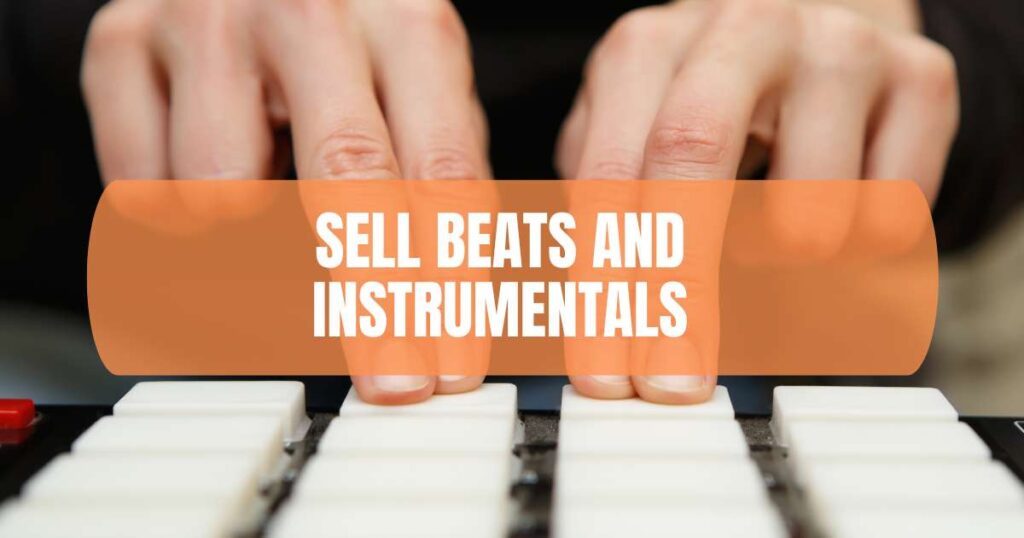
Selling beats and instrumentals is a top way music producers can earn steady income from their art. Platforms like BeatStars, Airbit, or Soundee let producers set their price and licence terms clearly for artists worldwide.
A producer might sell one track multiple times as leases at £20 each—or offer an exclusive sale to one artist alone for much more (often between £250 to over £1,000). Online marketplaces also provide tools such as contracts and promotional features that help attract new followers and increase music sales.
To make good money from selling beats online, producers must build a strong online presence with high-quality audio samples of their work. Popular British producer JAE5—who creates hits mainly within UK Afrobeat and rap genres—regularly sells beats through these channels.
Producers should upload fresh content often while taking advantage of social media marketing to boost visibility among aspiring musicians searching “buy beat” keywords daily on platforms similar to Splice.
Offer Mixing and Mastering Services
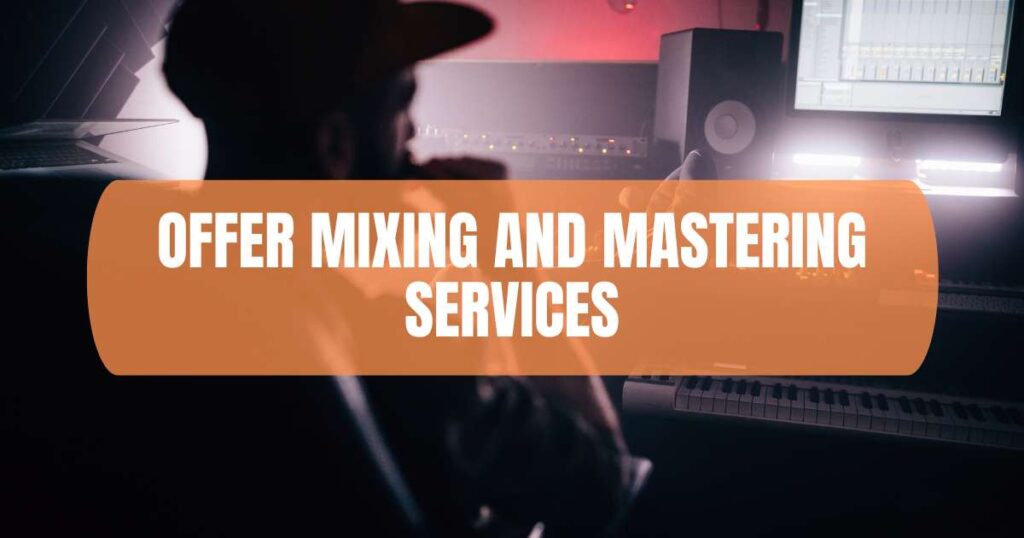
Many producers earn income through mixing and mastering services. Artists often seek professionals who can make their songs radio-ready by improving clarity, balance, and loudness.
Producers skilled in mix and master techniques can charge from £50 to £500 per track—sometimes even more for full albums or high-profile clients. Platforms like SoundBetter help connect music producers directly with musicians looking for reliable mixing experts, providing another avenue to boost revenue streams.
Producers need only simple home studio setups with proper headphones or speakers plus software like Logic Pro or Ableton Live to offer competitive music services. Building a portfolio of tracks they’ve mastered helps attract potential clients online through websites, social media posts, or testimonials from satisfied artists.
With enough demand built up over time, offering mixing and mastering may lead to steady passive income alongside other ways of earning money from music production.
Explore Music Sync Licensing
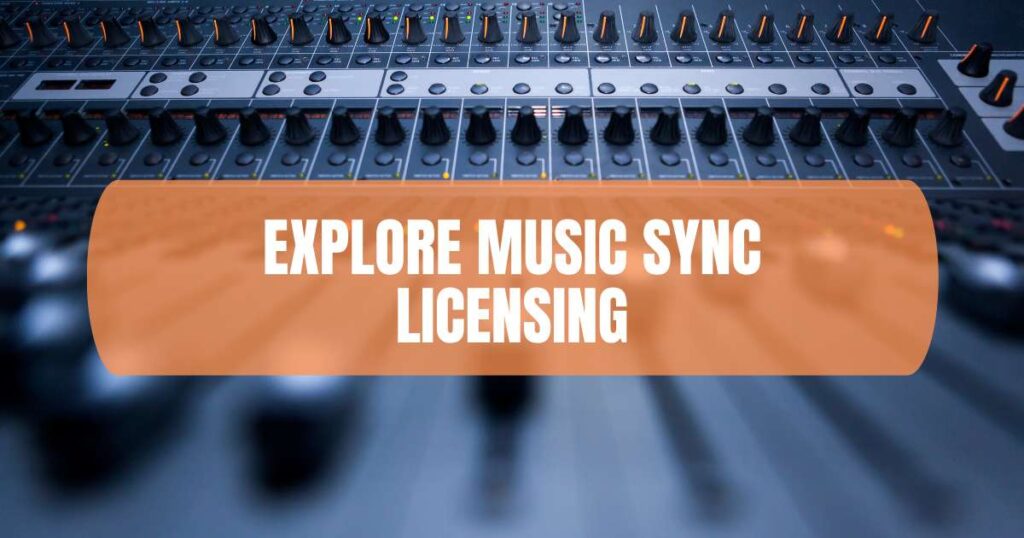
Music sync licensing lets producers earn money by allowing their songs to be used in films, TV shows, adverts or games. Producers can make from hundreds up to thousands of pounds each time a song is licensed, depending on the project’s profile and scale—making this one of the best ways to generate income as a music producer outside regular streaming royalty payments.
Platforms like Music Gateway or TAXI help connect aspiring producers directly with companies that use music for media projects. Popular music producers frequently boost their careers after landing placements—sync opportunities often lead listeners back towards artists’ own streaming channels or online merch sales.
Sync licensing opened up amazing avenues I never expected; suddenly my tracks were everywhere and earning steadily, says Matt Lange, renowned EDM producer.
Create and Sell Sample Packs or Presets
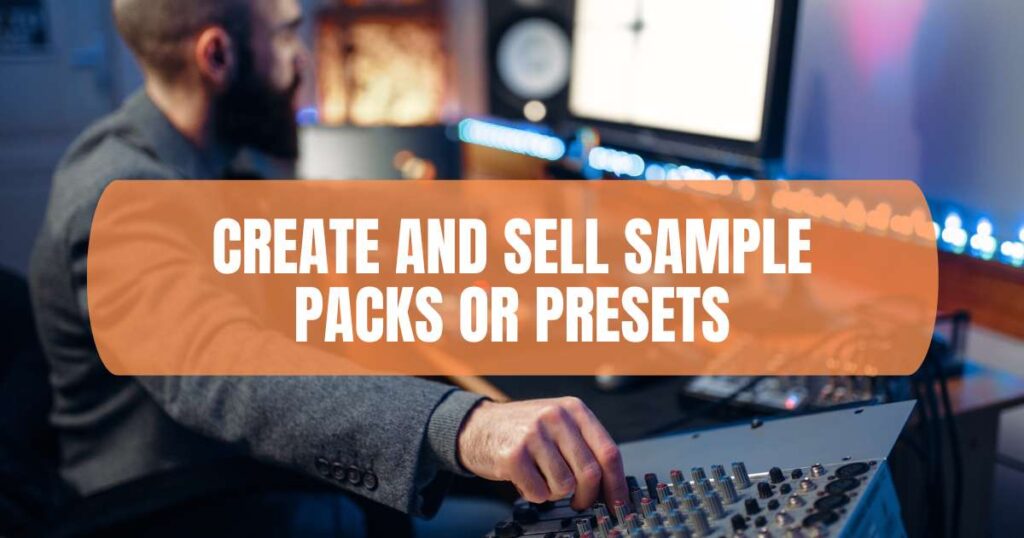
Creating and selling sample packs or presets can help producers make money from music production while building their authority in the field. Platforms like Splice allow artists to sell producer packs online, providing drum loops, melody samples, synth presets and more.
Producers with a knack for sound design often earn good income by turning their best sounds into products others can buy and use. Top-selling creators on these marketplaces sometimes see monthly earnings ranging from hundreds to thousands of pounds, depending on quality and popularity.
Making sample packs offers an easy way for new producers to earn extra cash without relying solely upon traditional sources of revenue like streaming or live shows. Producing high-quality content involves careful editing of audio files, clear labelling for ease-of-use as well as creating useful presets across popular software such as Serum or Massive that musicians require regularly.
Successful sellers usually promote through YouTube tutorials or Patreon channels where followers pay monthly fees in exchange for exclusive content including early access to new samples and special discounts—first-hand experience indicates this model boosts sales greatly among fans eager for fresh tools designed specifically around professional music workflows.
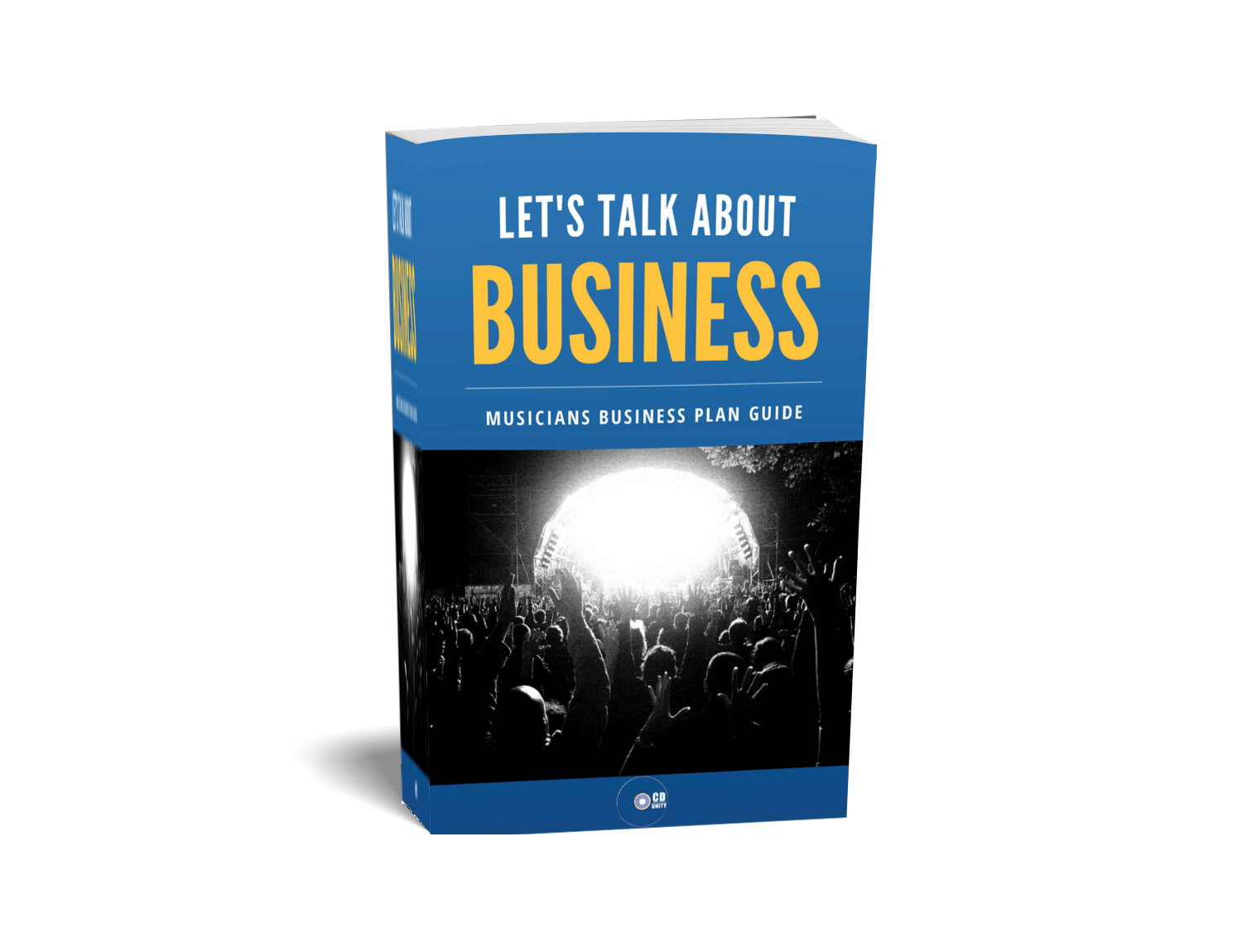
Monetise Your Streaming Royalties
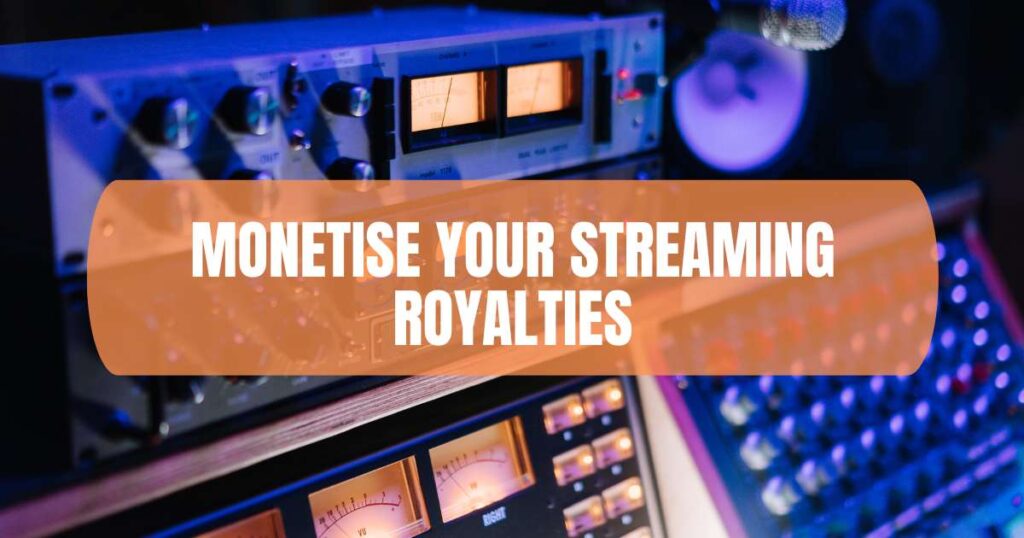
Streaming services like Spotify and Apple Music offer musicians an easy way to earn money through music streaming. Producers may earn royalties every time someone streams their track, which can quickly add up with many listeners.
On average, Spotify pays around £0.003 per stream; artists need about 1 million streams to make roughly £3,000.
Distributors such as DistroKid or TuneCore help producers collect these royalties and ensure payment each month. Some even provide useful insights into listener behaviour and data-driven tips for getting your music onto popular playlists—which greatly impacts your production earnings over time.
Understanding how much music producers make from platforms helps build a stable income source in any career in music production.
Start a YouTube Channel
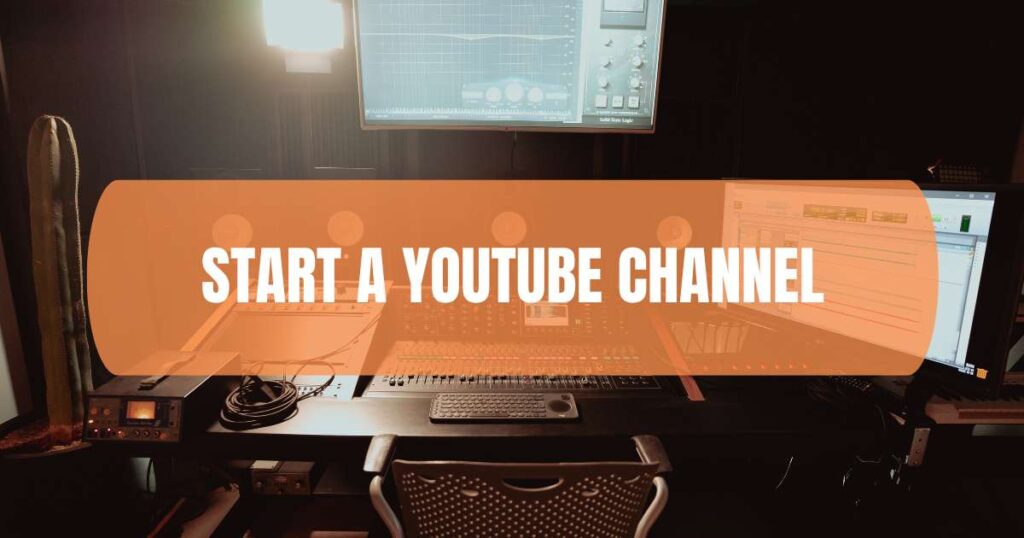
Starting a YouTube channel offers music producers clear ways to earn money and showcase their skills. Producers can create videos about the production process, sharing tips on making great music or reviews of equipment.
Channels with solid viewer numbers draw money through ads, brand deals, affiliate links and sponsored content—offering real potential to earn life-changing money.
Making regular video uploads grows an active subscriber base which helps monetisation efforts in the long term. Content may include tutorials like selling producer packs online, discussions around music publishing, streaming royalties or even top 5 ways for beginners interested in making beats.
High-quality and valuable content boosts subscriber count quickly; popular channels such as Andrew Huang have grown huge followings this way:.
Being consistent is one of the biggest keys that helped my channel grow. —Andrew Huang
Use Patreon to Offer Exclusive Content
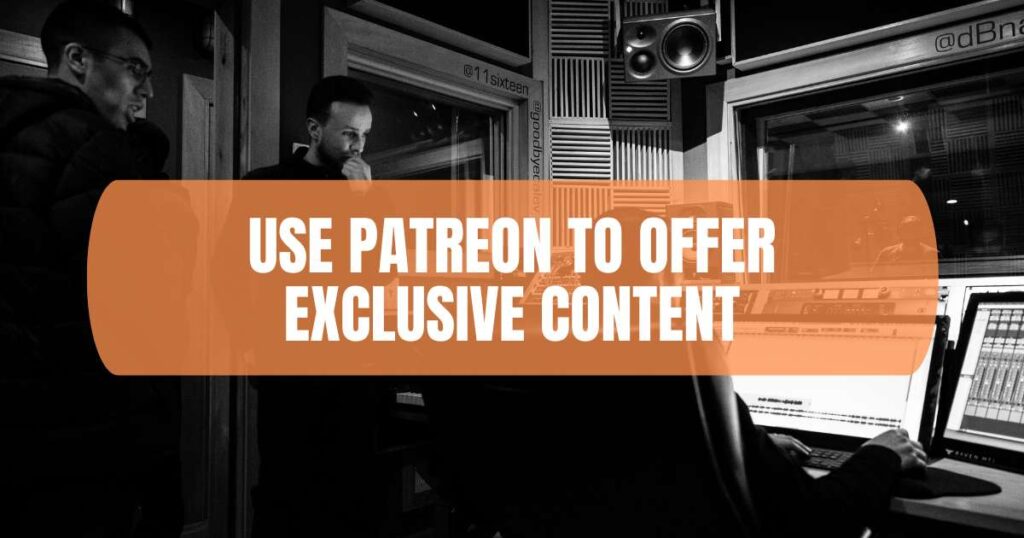
Patreon lets music producers earn extra money by offering exclusive content to their fans. Producers often share behind-the-scenes videos, unreleased tracks or early access to new projects on the platform.
They can give supporters special tutorials or host live streaming Q&A sessions about making music—something that’s valuable for dedicated subscribers. A producer who builds a strong Patreon following might make hundreds, even thousands monthly in addition to any base salary earned elsewhere.
For example, UK-based producer Andrew Huang uses Patreon successfully and earns over £9,000 per month from around 2,500 patrons. This steady income provides stability beyond royalties that vary each month through streaming services like Spotify or Apple Music.
The key lies in giving real value through regular updates and unique experiences targeted directly at loyal followers ready to pay for premium insights into their work process.
Become a Ghost Producer
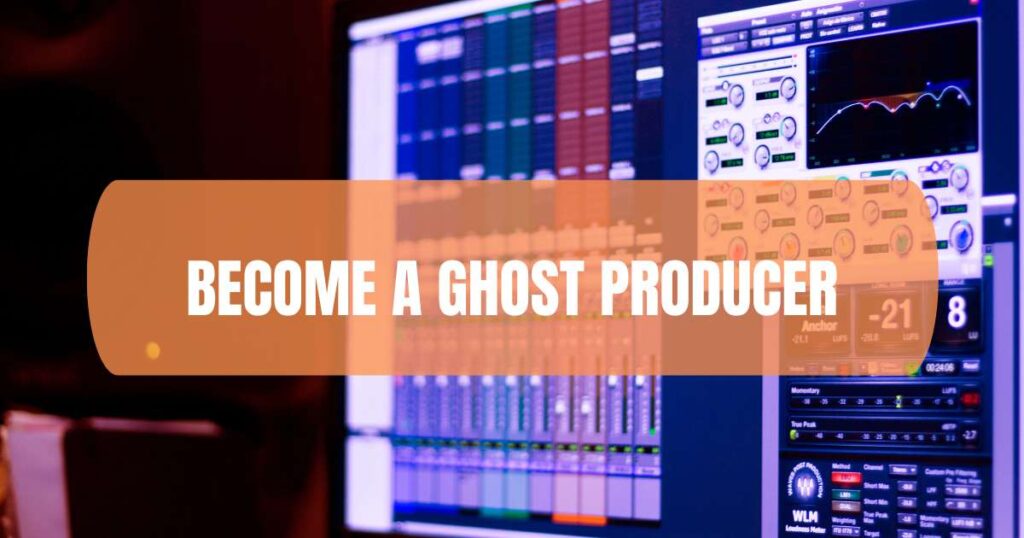
Offer Private Lessons
Private lessons offer music producers a direct way to earn money from their skills. By offering 1 on 1 sessions, a producer can guide musicians through the basics of production, mixing techniques or advanced mastering skills.
Online video calls make it easy for instructors to teach students worldwide and sell online bookings that cater to different time zones.
The fee charged per lesson may vary widely based on experience level—so much do music producers make from private lessons? Typical rates range anywhere between £30–£100 an hour depending upon reputation and skill set.
Producers who start building up a strong client base can turn private tuition into steady monthly income; social media platforms help greatly in promoting this service. Offering free trial lessons initially may also work well as an effective monetisation strategy to attract new learners.
Create Online Courses
Teaching music online can open a profitable stream of income for producers. Sharing first-hand experience and technical skills through well-made courses lets musicians gain monetisation from their knowledge.
- Choose clear topics like beat-making basics, sound design skills, or advanced production tools to reach many skill levels.
- Record high-quality videos using simple equipment—a good camera, clear mic, and easy-to-watch software tutorials help draw students in.
- Structure lessons into short sections with clear goals—students prefer short bits that are easy to follow and complete in one sitting.
- Offer extra resources with each lesson—like cheat sheets or checklists—which add real value and keep learners engaged.
- Use popular course-hosting platforms such as Udemy, Skillshare, or Teachable to easily sell online courses without complex setup.
- Set prices fairly by researching similar music production courses online—pricing too high scares people away; too low reduces perceived value.
- Include quizzes or exercises after your lessons for interactive learning, enhancing student satisfaction and course completion rates.
- Share key parts of the course on social media to boost interest—posts help attract new students who might not otherwise see the offer.
- Encourage satisfied students to leave reviews—a strong collection of positive feedback helps future learners trust the programme’s quality.
- Update content regularly to stay current, as changes happen quickly in music software and techniques over time—the more recent the course material is, the more relevant it feels.
- Promote special offers at launch (e.g., discount codes), motivating early learners to sign up promptly for quick sales growth—and spreading news through word-of-mouth recommendations fast-tracks further enrolments.
- Leverage mailing lists to announce fresh online courses directly—a loyal subscriber list shows higher conversion rates than cold advertisements alone and ensures steady engagement with interested audiences who know what you’ve got on offer.
- Clearly explain how taking your lessons can improve musicians’ own tracks—to encourage potential customers keen to take your music guidance seriously enough for buying full-length professional content from you repeatedly over time.
Offer Freelance Services on Platforms
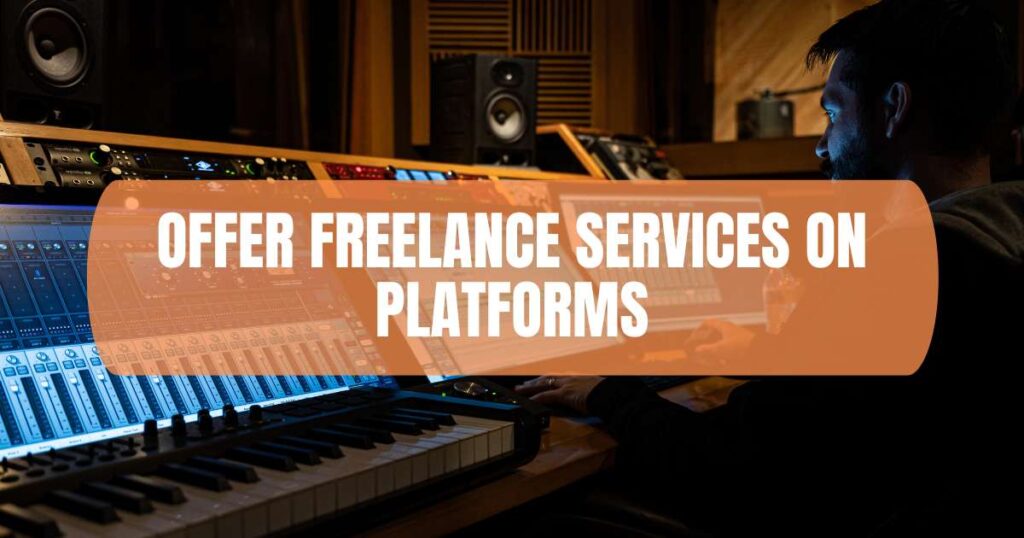
Producers can make extra cash by putting freelance services up for hire on platforms like Fiverr, Upwork, or SoundBetter. For example, they might offer custom beats, song edits, sound design for videos, or music jingles—whatever matches their skills.
Freelancing is great because it gives producers the flexibility to choose tasks that fit their schedule and talent level. It’s also a simple way of monetisation if you’ve got production experience but no long-term clients yet.
Platforms often show ratings from past customers; good reviews can boost how much work comes in. Producers should build an attractive online profile with clear examples showing what they can do and at what price range—in clear British English—to appeal more strongly to potential clients worldwide.
Earn as a Live DJ or Performer
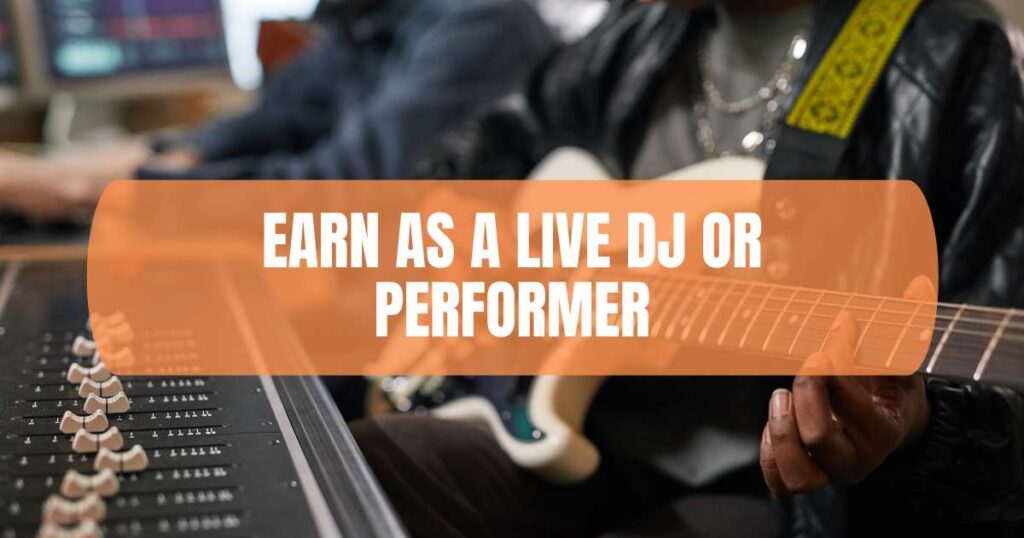
Live performances offer music producers real chances for monetisation. A producer can book gigs at clubs, festivals or events to showcase original beats and mixes. In 2022 alone, the UK live event market bounced back strongly after COVID-19 lockdowns—with industry revenues reaching over £1.28 billion according to Statista.
Performing live not only boosts a producer’s income but also increases their profile among listeners and potential clients.
To start landing DJ gigs, first-hand experience in performing helps build essential skills such as reading crowds and smoothly transitioning tracks during sets. Music producers need polished playlists ready for events—ideally covering different styles that match venue vibes or client requests—to ensure repeat bookings down the road.
Once you’ve got reliable gear sorted (decks, laptops), maintaining an engaging stage presence greatly improves your chances of getting called back by club owners or festival organisers again soon after each successful gig performed onstage!
Sell Merchandise to Fans
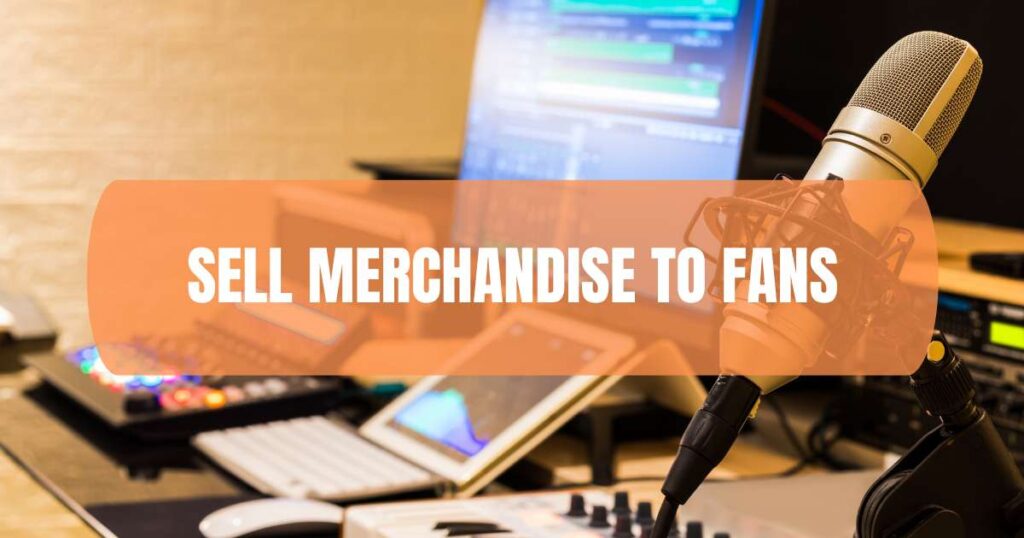
Fans love merchandise that shows support for artists they follow, whether it’s branded T-shirts, hats or posters. Musicians can earn extra income by selling products online through platforms like Shopify or Bandcamp and at local gigs.
Keeping designs simple but eye-catching helps boost sales without high upfront costs.
Easy-to-use print-on-demand services such as Printful or Merch by Amazon let musicians create items with no inventory worries—products are printed only after customers place orders.
This method reduces risk and makes merch-selling accessible to even brand-new artists on tight budgets.
Rent Out Your Home Studio

Many musicians have invested good money into creating a professional home studio—soundproofed rooms, quality microphones and solid gear. Rather than letting this space sit empty between personal projects, renting out the studio can bring in steady income.
Sites such as Studiotime or Fat Llama allow creators to list their studios for hourly or daily hire easily.
Music producers can set clear rental terms, pricing per session and available equipment upfront to attract interested local artists and bands looking to record demos, podcasts or voiceovers.
This simple step helps music producers monetise existing assets without extra effort while forming valuable connections with other creatives in the industry.
Diversify Through Digital Sales
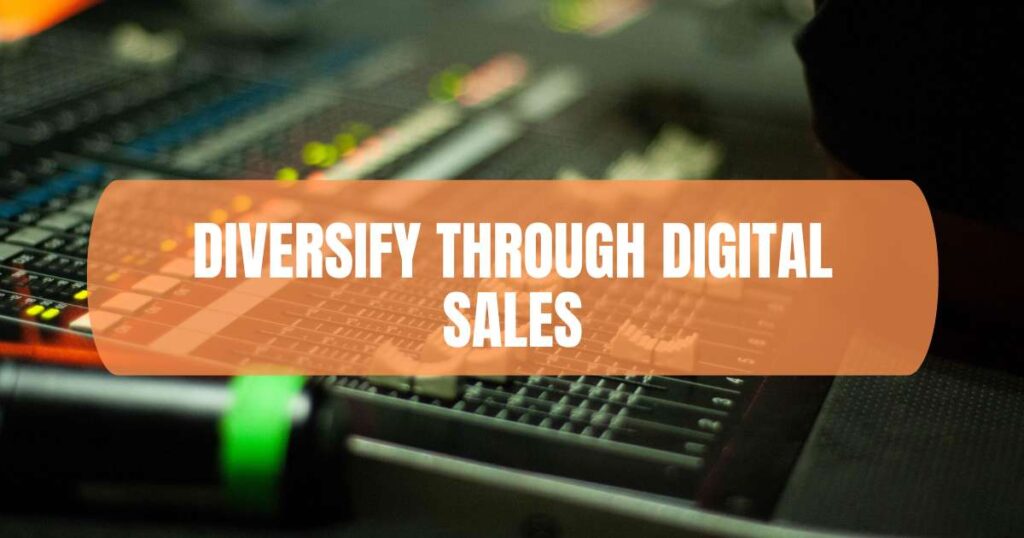
Digital sales give producers a chance to tap into new income streams online. Producers can reach wider audiences and boost earnings by expanding digitally—it’s all about working smarter.
Sell Production Tools
Selling production tools can become a stable income stream for music producers. Producers can create and sell items like drum kits, loops, MIDI files, audio plugins or preset sounds for popular software such as FL Studio, Ableton Live or Logic Pro.
Marketplaces like Splice Sounds, Loopmasters and ADSR Sounds offer easy platforms to host digital products—allowing musicians worldwide instant access.
A well-made sample pack or a useful sound library has broad appeal among aspiring musicians who need fresh content quickly without spending hours crafting from scratch. Pricing can vary greatly—from £10 per simple loop bundle up to £50 or more for premium preset packs—and with hundreds of downloads at a time possible on busy marketplaces, the earnings add up quickly.
Providing quality resources that make music production faster and simpler directly meets demand within producer communities online.
Licence Your Music for Apps or Games
Licensing music for apps or games gives producers a fresh way to earn steady income. Developers constantly seek unique tracks that set the tone and mood in gaming platforms, fitness apps, and mobile applications.
Producers can team up with game studios like Ubisoft or app developers such as King—the creators of Candy Crush—to offer their original pieces for licensing deals. Online marketplaces including AudioJungle or Epidemic Sound also allow musicians to connect quickly with potential buyers seeking suitable audio content.
To boost chances of landing these deals, artists need to produce versatile tracks offering different styles, moods, tempos and lengths. Keeping productions well-organised by genre tags and clearly labelled metadata simplifies it for developers searching extensive libraries online—making the producer’s work stand apart from competitors.
This streamlines partnership building between musicians who want passive income through repeat licence fees on popular digital products used globally every day.
Build Your Online Presence and Brand
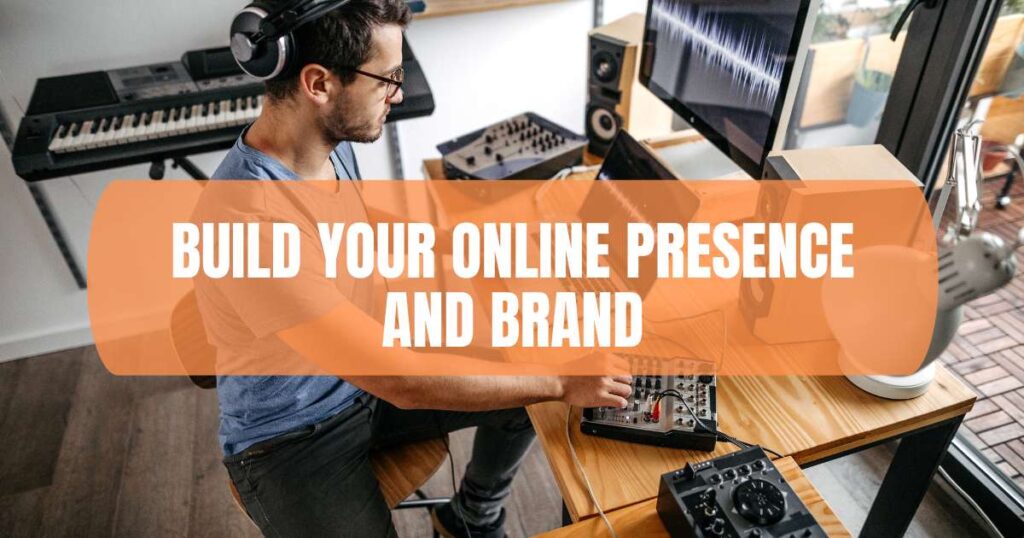
For a music producer, building an online presence is vital to attract new fans and paying clients. Producers can start simply—posting regular content on social media like Instagram and TikTok helps them share behind-the-scenes clips or showcase recent work.
Sharing short videos of studio sessions or quick tips proves popular with followers, boosting engagement. A professional website also gives producers control over their image, promoting services clearly while serving as a home base online.
Regular blog updates keep the site active and improve search rankings on Google.
A strong personal brand sets successful music producers apart from others in the industry. Defining a clear style—in terms of sound, aesthetics, or personality—helps establish trust with potential customers who value consistency.
Networking online through platforms like LinkedIn connects producers to artists seeking collaborations, leading to steady business growth over time. Joining relevant Facebook groups allows for exchanging ideas about gear choices and production techniques within supportive communities online too—a fantastic way to gain inspiration while expanding influence naturally across digital spaces used heavily by musicians worldwide today.
All in All
Making money as a music producer involves many paths, from selling beats online to licensing tracks for media. Producers can build steady earnings through teaching courses, freelancing or performing live sets.
Building an engaging brand presence online opens further opportunities like merchandise sales and subscriptions. Effective producers balance creativity with smart business moves, becoming successful in multiple income streams across today’s digital music industry.
The key is action — turning creative passion into profitable projects step by step.
Cheers, Josh
The Big Lists Of Music Promo Contacts
Includes PR companies, UK promoters & UK booking agents. Everything you need to put your band on the map.
Access Lists
Hello, I’m Josh, and I’ve been honing my graphic design skills for almost 15 years now, catering to the needs of bands and businesses alike. What really fascinates me is the business aspect of the music industry. In addition to my design work, I also happen to play the Hammond organ, and I strive to share my knowledge through helpful articles that I write exclusively for you all!

